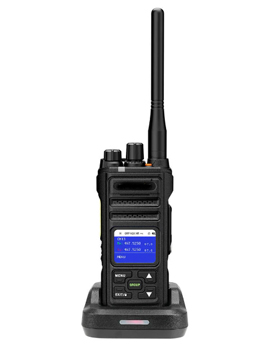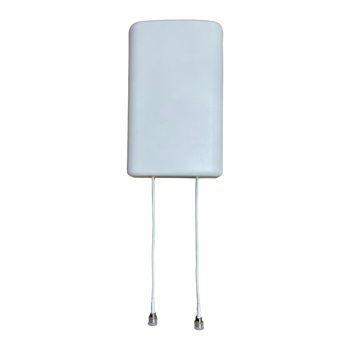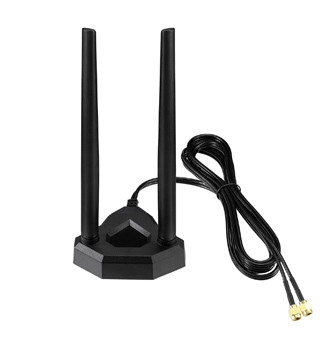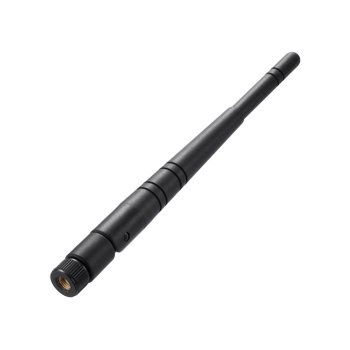
RFID in the healthcare and medical industry has also been on the rise similar to other industries like manufacturing, logistics, retail, delivery services, etc. RFID is a modern technology that works on a tag system where a tag encoded with specific data is attached on to an item and radio waves are used to locate and track that tag. RFID technology has huge potential to revolutionize healthcare. This article gives a brief overview of RFID technology and looks at its application in the healthcare industry in more detail.
Table of Contents
ToggleUnderstanding RFID in Healthcare
Radio Frequency Identification technology is similar to barcode technology but is more advanced and faster. RFID has three main components which are the RFID tag, a reader, and an antenna.
RFID tags use radio waves to transmit the information stored in them. When the RFID tag that has the encoded data passes through a frequency field of the antenna of the tag reader, the signals are identified, and the encoded data is collected and stored.
RFID tags are usually of three types; active, passive, and semi-passive.
- Active tags are powered using a battery and can show their signal nonstop and thus are generally used for real-time tracking of assets. In healthcare, active tags can be used to track assets like patient beds, wheelchairs, etc.
- Passive RFIDs are not internally powered and are instead powered by the RFID reader when it comes into the range of the reader. They can be used for instances like file tracking, detecting inventory in storage, monitoring the inflow and outflow of medical stock, theft prevention, etc.
- Semi-passive RFIDs have batteries to power the internal circuit but communicate with a reader using a backscatter.
RFID technology has multiple uses in healthcare. It can be used to track patients, staff, medical equipment, etc. It can also be used for analyzing data analytics in healthcare, hygiene and infection control, and inventory management. Overall, RFID technology provides the healthcare industry with better visibility, safety, security, and management of resources. A few of the use cases of RFID in healthcare will be discussed here.
Patient Tracking and Safety
A major application of RFID technology in healthcare is for patient tracking and safety. For instance, RFID tags can be used in the form of wristbands on patients to store all their medical history and information. This can improve safety and operational efficiency. RFID tags help physicians to accurately identify a patient and help to ensure that the right patient is given the right medication and treatments.
RFID tags on patients can also be useful for real-time tracking of the exact location especially for patients with Alzheimer’ or dementia and even for newborn babies to avoid being switched at birth.
RFID system implementation in a hospital will also improve security by guaranteeing that patients are tracked in real time and are not able to get out of hospitals without consent from the medical staff as well as avoid unauthorized personnel from getting into healthcare facilities.
What can Tesswave do for you?
Tesswave provide 100+ antenna products and you can contact us for antenna customized solutions, get in touch with us today to get a Free quote.
Get an Instant Quote
Get a FREE quote and we will contact you within an hour
Equipment Management and Utilization
In modern healthcare, RFID technology plays an important role in tracking and managing medical equipment. RFID tags are installed on equipment and they are utilized to track the real-time location of the equipment. This makes the operational activities much easier as the exact locations can be easily tracked when the hospital assets are on the move inside the hospital.
RFID technology not only helps in real-time tracking of medical equipment, but also is vital for inventory management. By monitoring the inventory inflow and outflow from the warehouse it can be ensured that the critical supplies are always available in stock and they can be maintained at safe levels. By encoding important data like purchase dates, expiry dates, etc. onto the RFID tag, expiration dates could be managed, automatic reorders can be scheduled and it will be possible to manage the inventory such that wastage is minimized.
RFID in Improving Hygiene and Infection Control
RFID technology is also utilized for hygiene and infection control. RFID is more effective for monitoring hand hygiene within a hospital than direct observation practices. They can be used to track the continuous path of every caregiver, monitor their hand hygiene events, and can prevent a healthcare worker from spreading an infection to other patients. During a pandemic, RFID can also be used to track people who come in contact with infected patients and to monitor their movements. RFID technology can also be useful in tracing vaccination processes, during transportation and distribution.
Role of RFID in Data Collection and Research
RFID technology is an important tool for data collection and research purposes in healthcare. RFID tags can be used on healthcare assets to enable administrators to monitor and take informed decisions regarding staff, drug inventory, medical equipment, etc. Data collected from the RFID system can be used to analyze and predict future patient flows, medical supply requirements, staff requirements, and schedules, etc. RFID is also extremely useful in clinical trials and research. Specific test subjects and their results can be accurately identified and monitored using RFID technology.
The Future of RFID in Healthcare
The potential for improvement of RFID technology in the healthcare industry is huge. Shortages in medical supply chains can be eliminated by mandating RFIDs for medical manufacturers and suppliers. Workflow can be optimized by monitoring and managing staff and resources such that healthcare workers do not have feelings of burnout due to extensive hours. RFID technology can be used to detect and prevent diversion of controlled substances. These are just a few of the upcoming applications of RFID in healthcare.
Although RFID technology has been impressive, there are certain challenges associated with implementing RFID in the healthcare industry. The main issue is the high cost that is required to invest in RFID system. Another challenge is privacy concerns. When encoding data to a tag, reading it using a RFID reader, or transferring captured data to software, during any of these processes there is a possibility for an unauthorized party to access the data. There can be certain technical limitations as well since RFID hardware and software have not yet been standardized for usage in the healthcare industry. Lack of knowledge of RFID technology among healthcare workers and staff could also be a challenge to properly utilize the benefits of a RFID system. The use of RFID technology in healthcare is promising although there are certain barriers associated with it. Thus, it is recommended to do a cost-benefit analysis before implementation and it can be done in a step-by-step process beginning with low-risk tasks like asset tracking. Improved data security measures can be taken to target privacy concerns. Medical staff can be provided with sufficient knowledge and training to improve the efficiency and usage of a RFID system.
Conclusion
RFID technology has provided significant benefits to the healthcare industry. It will continue to have advancements in future as with all modern technology. Although certain healthcare facilities have been reluctant to implement RFID systems due to certain challenges, by careful administration and proper implementation, RFID technology can revolutionize the healthcare industry.








